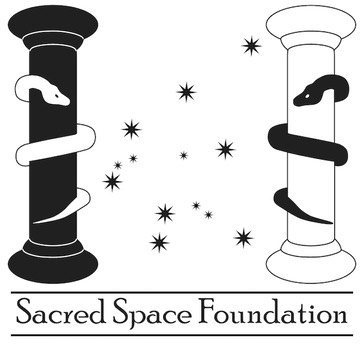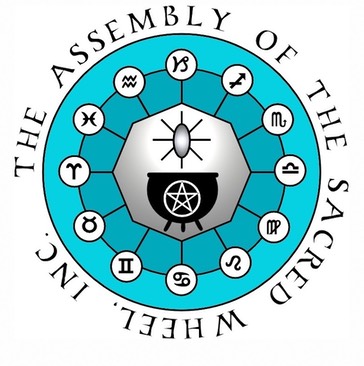For the sake of clarity we will be using Sacred Space’s Anti-Harassment Policy for both events.
Sacred Space Anti-Harassment Policy
The Sacred Space Foundation strives to encourage continuous growth in the Pagan and Magickal communities by providing high-quality programming for intermediate to advanced practitioners. It is essential that the Sacred Space Conference and other events be safe spaces, free from harassment.
This policy articulates expectations and provides a process for reporting, investigating, and addressing violations.
Types of Unacceptable Behavior Addressed in this Policy
Criminal behavior
Criminal sexual behavior includes: sexual assault and rape, sexual activity with minors (under the age of 18), violating restraining orders, stalking. Nonconsensual sexual behavior is assault, is illegal, and will be treated as the crime it is.
Non-sexual assault
Drugging anyone
Any report of these criminal behavior will be immediately referred to law enforcement.
Unwelcome but non-criminal behavior
Sexual harassment: Unwanted sexual attention. If you are flirting with someone and they tell you to stop, and you do not stop, that is harassment.
Bullying and intimidation
Violating someone’s privacy, including social media use
A note on sexual harassment: Sacred Space strives to encourage the development of a positive sexual culture, which is in contrast to the values of the dominant culture that does not respect consent, undermines sexual empowerment, and teaches shame. The core commitments are to consent, autonomy/agency, and a non-judgmental attitude towards safe, sane, and consensual practices among adults. Those who treat Pagan events as hunting grounds violate these ethics. It is essential that anyone giving sexual attention to someone quickly and accurately determine whether it is WELCOME. If you have any doubt, assume your attention is unwelcome. It is the responsibility of those who are flirting to be constantly aware about whether their attention is desired; however, we are not all perfect telepaths. Therefore, if attention is unwanted, please exercise your personal power and clearly state that the behavior needs to stop. Anyone who ignores the “no” should be reported to the board.
Reporting Process
Who can report?
The report must come directly from the person affected. We encourage people to make a complaint as soon as possible, both to enable the board to intervene, if necessary, and to aid investigation. In order for the board to take action related to the incident, the board needs to be informed within six months of the conference to give us time to investigate. Hearsay (information from a secondary source) will not trigger an investigation.
To whom should you report?
Any board member can take a report. If you cannot immediately find a board member, please go to the registration desk and the volunteers will locate a board member. If a board member feels unable to take a complaint, s/he will refer the case to another board member.
Giving the complaint
The board member taking the complaint will conduct a structured informational interview to gather as much information as possible. Once the notes from the conversation are created, it will be sent to the complainant to verify for accuracy. All of the details are documented in confidential notes held by the board.
Investigation
The complaint will be discussed at a board meeting. Responsibilities to conduct the investigation will be assigned. Investigation will always be conducted by a minimum of three board members. The investigation will include additional fact-finding interviews, including with the person about whom the complaint was made, and any witnesses.
Board deliberation
The board will discuss the complaint and all evidence at a meeting of the full board. Documentation of the complaint, all evidence gathered, records of the deliberation, and decisions will be documented and kept in confidential records.
Note: If the situation warrants calling law enforcement for violence or disruption, that is sufficient for the board to act without further investigation.
Consequences
The board uses a tiered system of responses. This permits sufficient flexibility to respond to varying levels of severity, but also enables the board to address systemic problems for lower-level complaints that form a pattern. All communication about the complaint with the one about whom the complaint has been made will include at least three board members.
Oral Warning
This is the lowest end of the spectrum. The board will tell the person of the complaint and provide the specific details, maintaining the anonymity of the person complaining, if appropriate. The board will clearly tell the person that their behavior was unacceptable and that we expect we will not see it again. The conversation will be followed up with a memo recording the content of what was said. If someone refuses to have a conversation with the board members, a memo will be sent.
Banned for Specified Period
If this is the decision of the board, it will be communicated in a certified letter sent by the board.
Banned for Life
If this is the decision of the board, it will be communicated in a certified letter sent by the board.
Note: In cases of criminal allegations, the board will fully cooperate with law enforcement.
Teachers and Ritual Leaders
Teachers and ritual leaders should recognize that they might be perceived as having authority which could create a perceived power differential. They should, therefore, be especially rigorous in ensuring that any attention they give to an attendee is wanted.
Additionally, if a workshop or ritual includes explicit sexual content, including but not limited to nudity, any demonstration or practicum on sexual content, it MUST BE DESCRIBED AND EXPLAINED in the application and teacher or ritual leader must spell out what, specifically, is going to be done in the class/ritual description. In the interest of informed consent, the teacher must describe what the participants can expect at the beginning of a class and let the attendees know that it is okay if they would like to leave. Informed consent is critical.
Any attendee is eligible to attend any session at the conference. We do not accept programs that restrict categories of attendees.
Board Members
Board members are held to a high standard and are expected to act with honesty and integrity at all times. In addition to the standards of conduct expected from all members of our community, board members are also expected to recognize the power differential that comes from being members of the board in exercising their judgment.
If a board member is accused of misconduct, that member is recused from the investigatory and decision process regarding the complaint. The accused would not have access to the investigatory documentation. If the board finds in favor of the board member, the name of the complainant is redacted from the documentation.
In addition to the sanctions applicable to everyone, a board member may be removed from the board.
Passed by the Sacred Space Foundation Board on May 29, 2018



